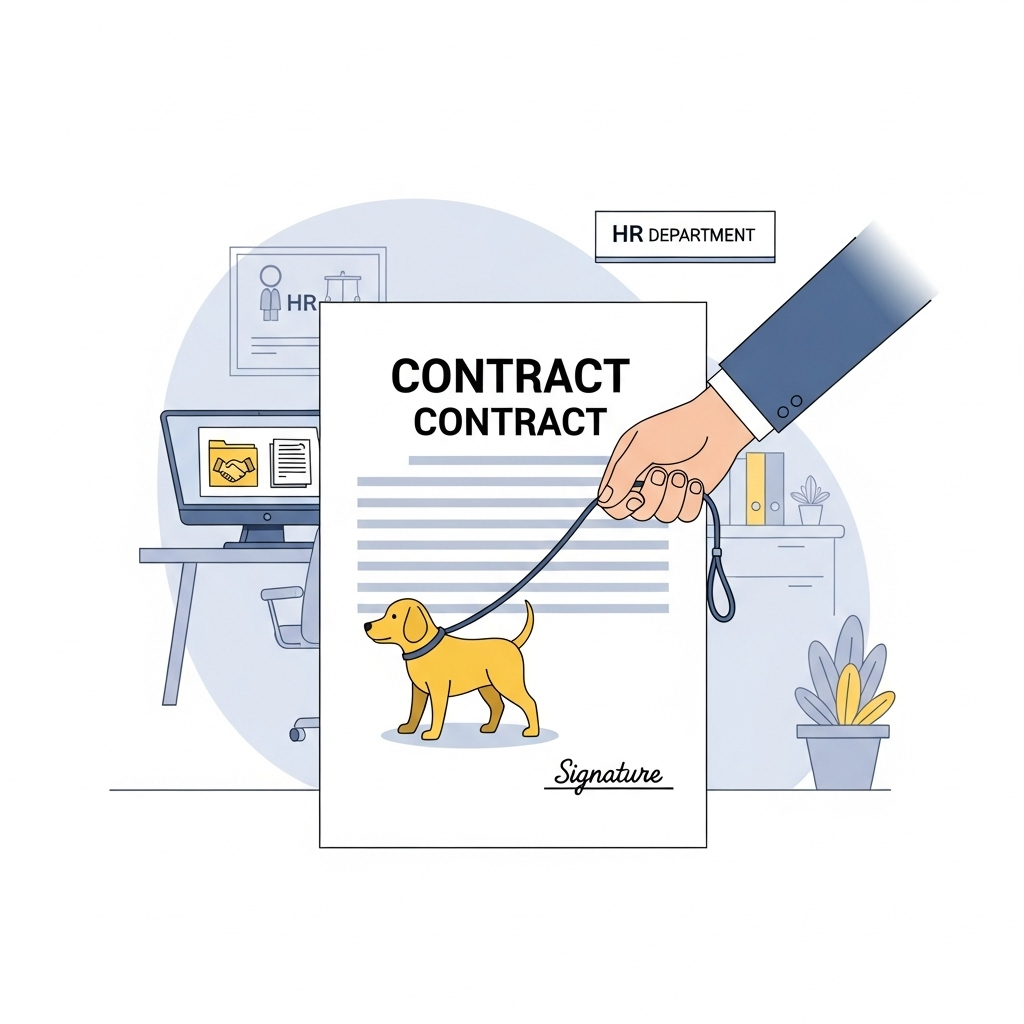Definition
A Yellow Dog Contract is an employment agreement that prohibits workers from joining or participating in labor unions while employed by a company. This type of contract has its roots in the early 20th century, where it was used to label workers as disloyal if they chose to unionize. Nowadays, Yellow Dog Contracts are largely considered illegal in many areas due to their infringement on employee rights and labor laws.
Key Components
Understanding the nuances of a Yellow Dog Contract is essential for HR professionals. While these contracts are largely out of favor and illegal in many places, knowing their components can help you navigate the legal landscape of labor relations.
- Prohibition of Union Membership: The central feature of a Yellow Dog Contract is its restriction on employees from joining or supporting unions. This could manifest in a clause stating that employment is contingent upon the employee not engaging in union activities.
- Historical Context: The term “Yellow Dog” stems from a time when employers sought to discourage unionization. Understanding this history can help HR professionals grasp the implications of using or encountering these contracts.
- Legal Risks: Currently, these contracts can expose an organization to significant legal challenges. If a worker is found to have been coerced into signing a Yellow Dog Contract, the employer may face penalties under labor laws.
- Ethical Considerations: Beyond legality, there are ethical implications. Restricting union activities can lead to employee dissatisfaction and a perception of unfair treatment, which is crucial for maintaining a positive workplace culture.
- Employee Rights: Yellow Dog Contracts conflict with the rights of employees to engage in collective bargaining. As an HR professional, it’s important to uphold these rights and foster an environment of open communication.
Importance in the Workplace
Understanding Yellow Dog Contracts is vital in today’s workplace. As an HR professional, you may encounter situations where employees express interest in unionizing. Recognizing the historical and legal context of Yellow Dog Contracts can help you navigate these conversations effectively.
For instance, imagine a scenario where several employees voice their desire to form a union for better working conditions. If your organization has a history of using restrictive employment contracts, addressing their concerns openly can prevent potential legal disputes and promote a more harmonious workplace. By being informed, you can foster trust and transparency, ultimately benefiting both your employees and the organization.
Best Practices
While Yellow Dog Contracts are largely illegal and not recommended, understanding best practices around employee agreements is essential. Here are some actionable steps you can take:
- Stay Informed: Keep up with labor laws and regulations in your area. This includes understanding any changes that could impact your organization’s policies regarding unionization.
- Encourage Open Dialogue: Create a culture where employees feel comfortable discussing their concerns about workplace conditions and unionization without fear of repercussions.
- Prioritize Employee Rights: Develop contracts and workplace policies that respect and uphold the rights of employees to engage in collective bargaining. This can help avoid the pitfalls associated with outdated practices.
- Train Your HR Team: Ensure your HR team is well-versed in labor laws and the implications of restrictive contracts. Regular training can keep them updated on best practices and legal requirements.
- Seek Legal Guidance: If you’re unsure about the legality of certain employment agreements, consult with legal experts who specialize in labor law to ensure compliance and protect your organization.
Legal Considerations
In the United States, Yellow Dog Contracts are prohibited under the National Labor Relations Act (NLRA), which protects employees’ rights to organize and engage in collective bargaining. As an HR professional, it’s crucial to understand these legal frameworks to avoid potential lawsuits and penalties.
It’s also worth noting that laws can vary by state, so staying informed about local regulations will help you navigate the complexities of labor relations effectively. If your organization has any historical employment contracts that may resemble a Yellow Dog Contract, it’s important to review and possibly revise these agreements to align with current legal standards.
Conclusion
Grasping the concept of a Yellow Dog Contract and its implications is essential for any HR professional. While these contracts have largely fallen out of favor and become illegal in many jurisdictions, understanding their history and the legal landscape surrounding labor relations can help you foster a positive and compliant workplace. By prioritizing employee rights and encouraging open dialogue, you can create an environment that supports both the organization’s interests and the welfare of its employees.




